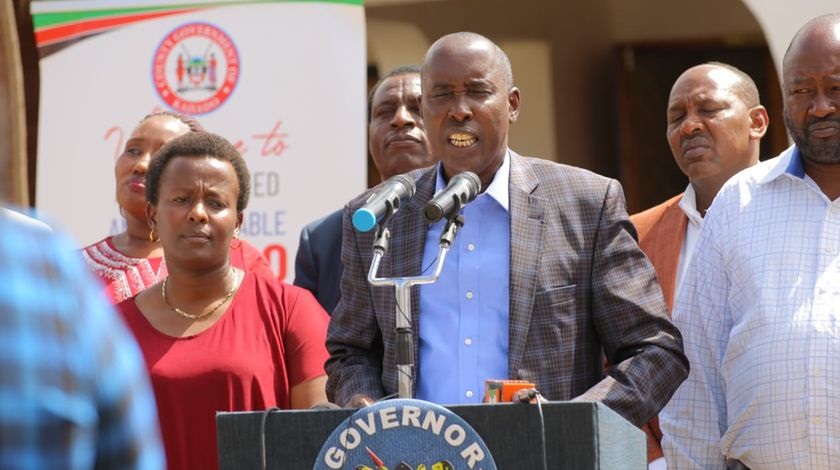All students who took the Kenya Certificate of Primary Education (KCPE) examinations in 2022 must enrol in secondary school, regardless of whether they paid tuition, according to a decision made during a crisis meeting of Kajiado County education stakeholders.

The meeting also launched a multi-agency effort to guarantee that all students who took the Grade Six (KPSEA) exams enrolled in their respective primary schools' junior secondary schools (JSS).
The conference, called by County Education Board (CEB) and Governor Joseph Ole Lenku, is expected to save thousands of school-age youngsters from the grazing pastures and archaic cultural customs.
The Ministry of Education conducted a study recently, and the results showed that 67 per cent of county students and 85 per cent of JSS students were transitioning to secondary school.
Did you read this?
The discussion exposed the effects of the prolonged drought on local children's access to education, stressing that those who cannot report at this time risk a permanent expulsion from the educational system.
.jpg)
"We must protect our students from the severe effects of the drought".
Many families are now poor due to the drought and unable to pay their children's tuition.
"This can't be the end of education, "Governor Lenku stated.
He continued by saying that the loss of livestock had made it necessary for males to accompany their parents in search of pasture and had left girls vulnerable in the villages.
The new order will be put into effect by the Education Board, whose secretary is the County Director of Education and consists of associations of elementary and secondary school principals, the teachers union, Knut and Kuppet, and representatives of other educational interests.
Thirty-seven per cent of individuals who took the KCPE examinations in 2022 have yet to enrol in secondary school, according to data from the national government.
Involved Wards
By coincidence, most of the wards in 100 per cent transition that is negatively impacted by drought are the same.
Poka Kenyawa, Magadi, Kaputie North, South, North and South of Matapato, Mosiro, Entonet Lenkisim, Dalalekutuk, Ewuaso Oonkidong, Imaroro, and are among these.
The wards of Nkaimurunya, Ngong, and Oloosirikon Sholinke have the highest rates of urban dropouts.

The county administration and the board have now decided that priority will be providing emergency food supplies to schools so that students can eat at least one meal.
"We currently provide enhanced porridge flour to all ECDs. We deliver meals to schools so they can make sure students have something to eat, "Mr Lenku stated.
The stakeholders have also decided to ensure individuals who cannot pay fees report to secondary school.
"All school principals have been urged to accept every student expected to this term. We've agreed to provide these kids more money from the bursary pool and other support funding, "Mr Lenku stated.
Also, the Kajiado County Education Department has encouraged the governor to speak with the county assembly leadership about the possibility of postponing some development projects and diverting the money to food relief.
The county administration will give hauling water to schools that are severely low on the resource a priority as well.
The Ministry of Education would prioritise hiring skilled teachers in the JSS, which suffers from a severe tutor shortage.
"The lack of JSS teachers in our area is grave. Some schools only employ one JSS instructor. While we wait for more deployment by the Teacher's Service Commission (TSC), we are pleading with school administrators to permit lower class instructors to teach in JSS "said Ali Letura, chairman of the county education board.
The local Knut chapter secretary Elly Korinko said that most Kajiado schools had lost a significant share of government capitation payments, given the money is released when the learners are enrolled using the Nemis number.
"It has an impact on the schools as long as the majority of students are absent. Currently, most Kajiado schools only get a small amount of government capitation money, "Mr Korinko remarked.
The National Drought Management Authority claims (NDMA) that more than one million livestock has perished from hunger in the past year, and at least 500,000 families in Kajiado are in danger of starvation.
.jpg)
Parents have reportedly been sneaking into neighbouring schools for free lunch in several localities. Most locals are herders who are currently subsisting on relief food after losing their animals to drought.









